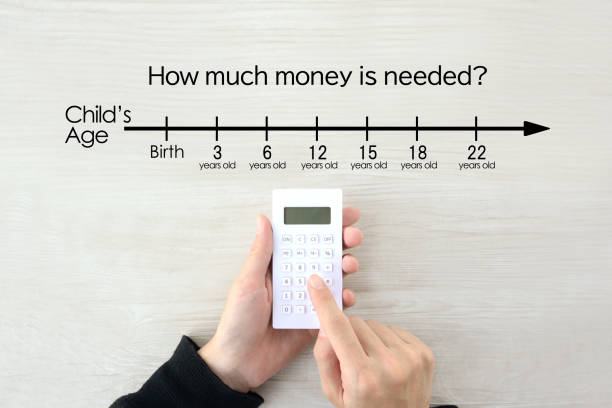A parent can make child maintenance payments for financially supporting a child who is over 18 years old. After a divorce or separation, the non-custodial parent of a child has the obligation to make child support payments that help the primary carer of the child to raise him/her.
Child support payments generally stop when the child turns 18 years of age. However, it is possible that the adult child wishes to continue his studies, or is unable to find employment due to certain mental or physical disability.
In these scenarios, the parent needs to make child maintenance payments. They can also be called adult child maintenance. In this article, we discuss Subdivision D under Division 6 of Part VII of the Family Law Act. This subdivision consists of 8 Sections. These Sections are important when discussing the topic of applications for child maintenance payments.
Section 66F: Who Can Apply for Child Maintenance Payments Orders?
Section 66F outlines a list of persons who can apply for child maintenance orders. This list is as follows:
- either of the child’s parents, or both of the parents,
- the child himself/herself,
- grandparent of the child
- any other person concerned with the care, welfare and development of the child
Furthermore, a child maintenance order for a child who is in the care of a person under child welfare law can only be applied for by:
- the child
- a parent of the child who has the daily care of the child
- relative of the child who has the daily care of the child, or
- a child welfare officer of the relevant State or Territory
Section 66G: Court’s Power to Make Child Maintenance Order
The court may make child maintenance order subject to this Division or to Section 111AA (this Section is related to maintenance obligations with New Zealand).
Section 66H: Approach to be Taken in Proceedings for Child Maintenance Order
There are certain points that the Court must consider when making a child maintenance order. This includes:
- The court must consider the financial support necessary for the maintenance of the child, and
- Determine the financial contribution, or respective financial contributions, towards the financial support necessary for the maintenance of the child, that should be made by a party, or by parties to the proceedings.

Section 66J: Matters to Consider For Financial Support
When discussing child maintenance payments, it is important to highlight Section 66J as it outlines the matters that courts take into consideration when checking necessary financial support for a child.
It states that the Court must consider:
- Matters outlined in Section 66B
- The proper needs of the child
- The income, earning capacity, property and financial resources of the child
When the Courts take these matters into account, it must have regard to the age of the child, the manner in which the child is being educated, trained, and any special needs of the child.
Moreover, the court must also have regard to the capacity of the child to earn or derive income, including any assets under the control of the child that can produce income.
Section 66K: Matters to Consider For Determining Parties’ Contributions
This Section states that to determine the financial contributions towards support necessary for maintenance of child, the court should consider:
- Matters mentioned in Section 66B, 66C and 66D
- The income, earning capacity, property and financial resources of each party
- The commitments of the parties to support themselves or any other person that the parties have a duty to maintain
- All direct and indirect costs that the parties incur
- Any special circumstance that can result in hardship if not considered
Moreover, the court must also consider the capacity of the parties to earn and derive income. Courts will also consider if the child, or anyone he/she lives with, has any entitlements like income tested pension, allowance or benefit.
Section 66L: Children Who Are Over 18
The court should not make orders for child maintenance payments for children who are 18 years of age or older, unless it is satisfied that:
- maintenance is necessary to enable the child to complete his/her education,
- because of a mental or physical disability
Generally, a child maintenance order stop being in force when the child turns 18. However, in case any of the above special circumstances apply, the court can make orders for child maintenance payments.
Section 66M: Step-parents Duty to Maintain
According to Section 66D, even step-parents may have the duty to maintain the child financially. They have such a duty only if there is such an order in force. The court may consider it necessary for step-parents to maintain the child, and make orders accordingly.
The Court will consider the following matters while making any such orders:
- the matters referred to in Sections 60F, 66B and 66C;
- the length and circumstances of the marriage to, or relationship with, the relevant parents of the child;
- the relationship that has existed between the step-parent and the child;
- the arrangements that have existed for the maintenance of the child; and
- any special circumstances which, if not taken into account in the particular case, would result in injustice or undue hardship to any person.
Section 66N: Determining financial contribution of step-parent
To determine the contribution (of child maintenance payments) that a step-parent needs to make, the court must take the following points into account:
- the matters referred to in Sections 60F, 66B, 66D and 66K;
- the extent to which the primary duty of the parents to maintain the child is being, and can be fulfilled.

Importance of Seeking Legal Advice
As you may have noticed, the Family Law Act (1975) is quite complicated and extensive. To apply these laws and legislation to your individual family law matters, it is important to seek legal counsel from experienced solicitors.
At JB Solicitors, we have an award-winning team of family lawyers who are able to provide tailored-advice to all clients. We also have a page dedicated to the Family Law Act that simplifies the various Sections.
Get in touch with us of you have any enquiries.
